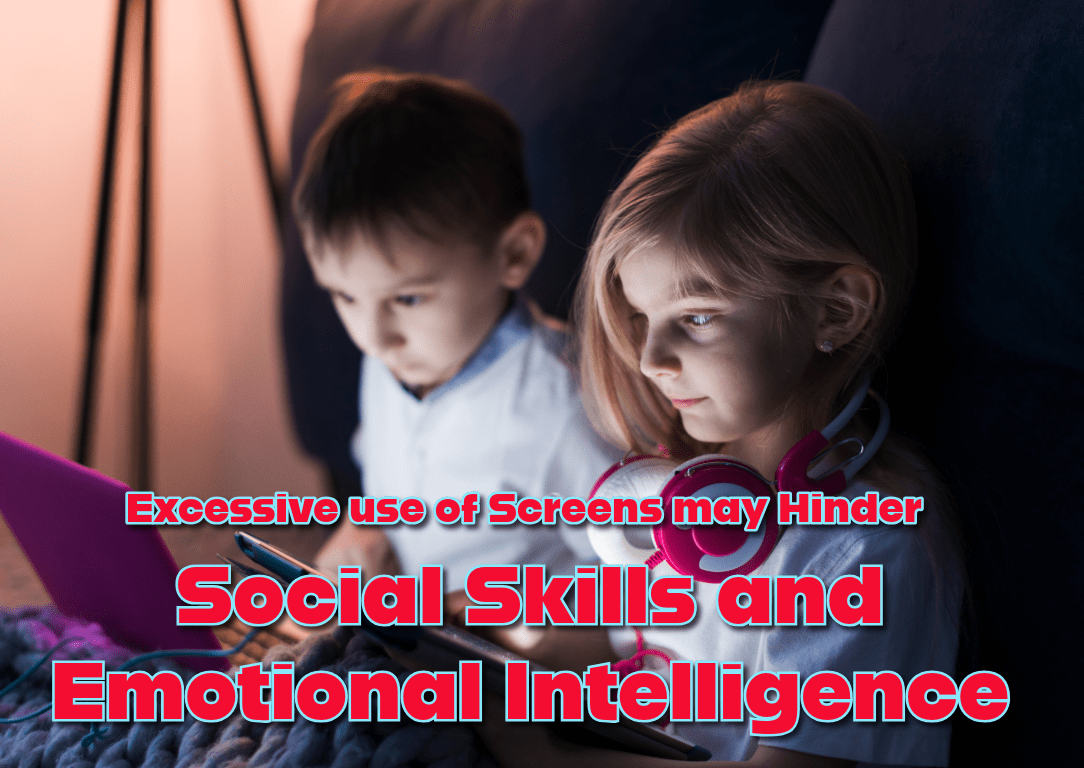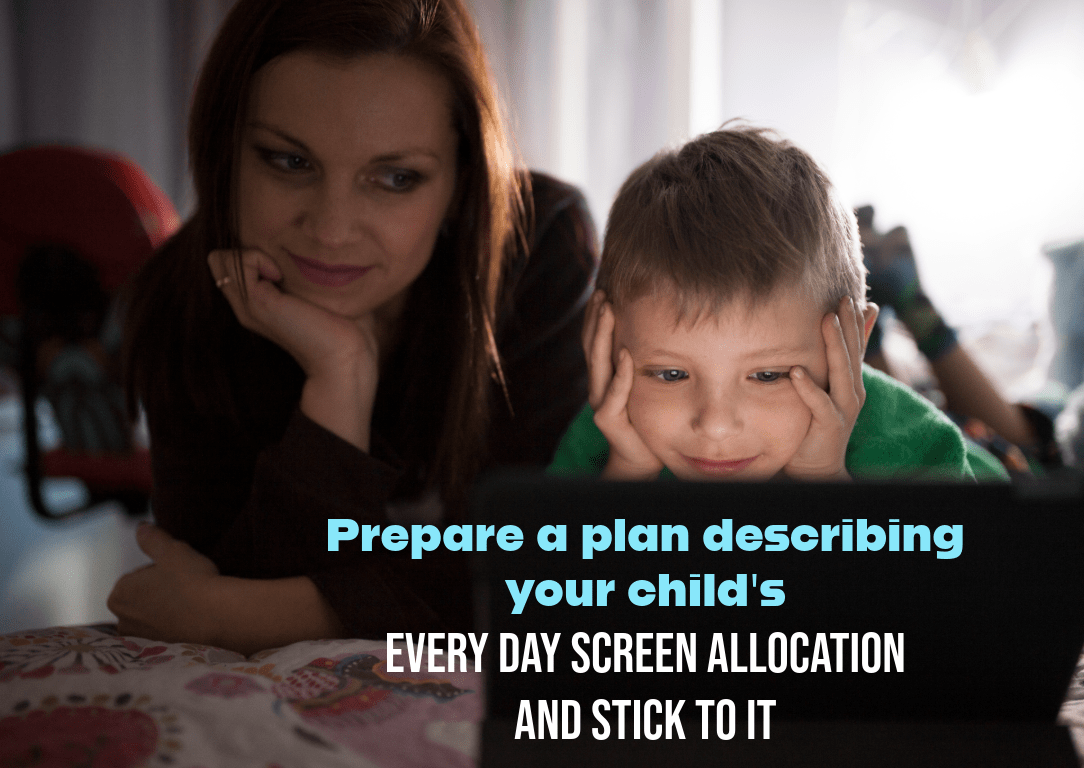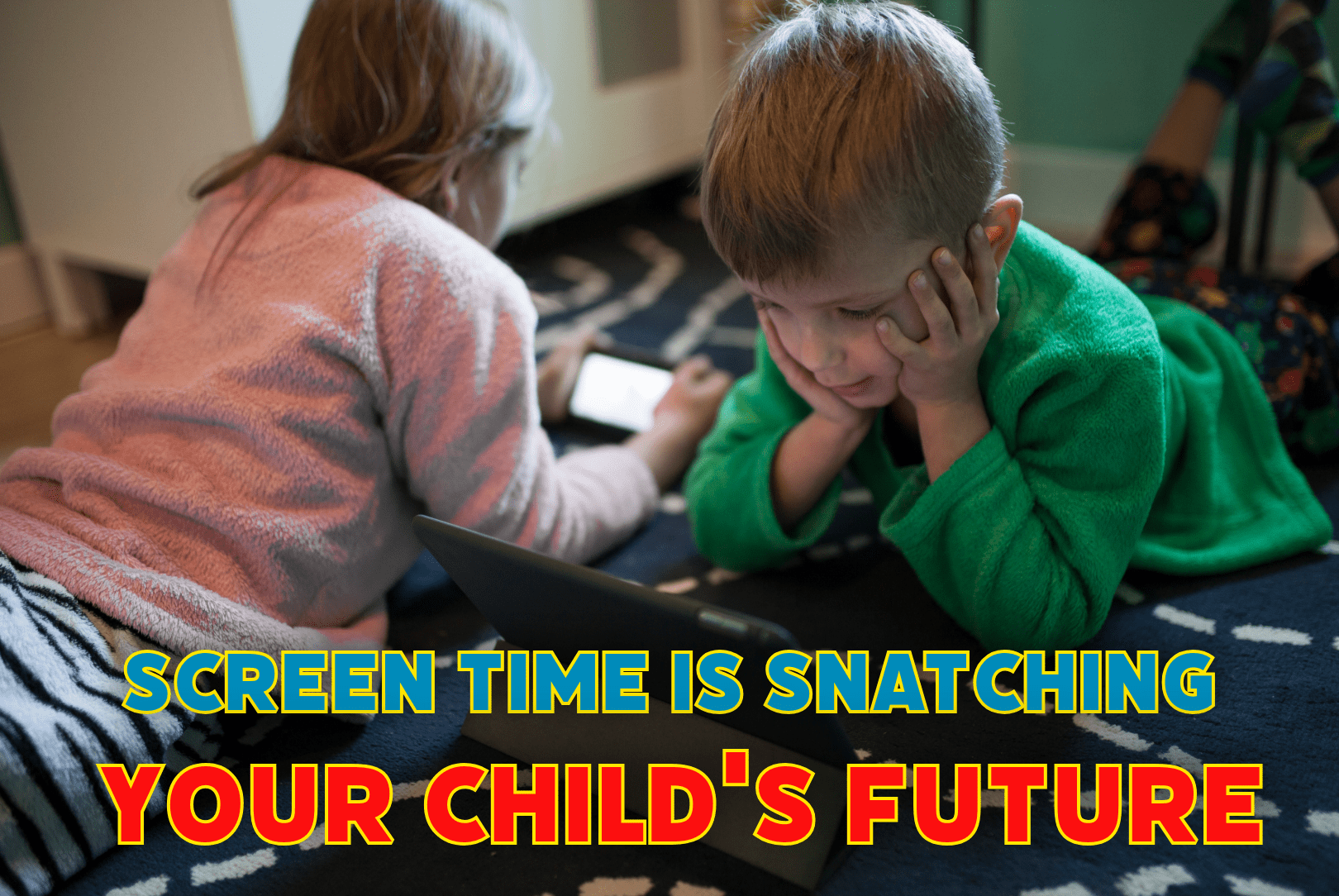You must be compelled to think of how screen time is snatching your child’s future, your child’s childhood, your child’s academics, your child’s health, and so on. No doubt, screens have become a vital part of our lives in our current digital age. Since there are plenty of screens everywhere, from laptops to televisions, tablets to smartphones. Since children are exposed to screens from an early age, it is logical for parents to speculate whether screen time is good or bad for their child’s future.
Here in this article, we are to explore a balanced viewpoint on the negative and positive impact of screen time on the teenaged school-going children. We shall quote what the experts say and the brief data of the World Health Organization for general awareness.
The Impact of Screen Time on Children
Excessive screen time can have several negative effects on children, including:

- Delayed cognitive development: Excessive exposure to screens could lead to delayed cognitive development, including delayed language and problem-solving skills.
- Obesity and health issues: The excessive use of screens can result in a sedentary lifestyle, which worsens obesity and other health problems.
- Sleep disturbances: Sleep issues and related complications could arise from screen time before bed.
- Social skills and emotional intelligence: Excessive use of screens may hinder social skills and emotional intelligence, making it hard for kids to understand emotions and establish meaningful relationships.
Expert Quotes
- “Children under the age of 2 should not use screens at all, while older children should only use screens for one to two hours per day.” – American Academy of Pediatrics
- “The World Health Organization recommends no screen time for infants and toddlers up to age 2 years and less than 1 hour of screen time per day for children aged 2-4 years.” – World Health Organization
Data from World Health Organization
- A study by WHO found that more than 60% of children aged 2-5 years exceed the recommended daily screen time limit of 1 hour.
- The WHO also reports that excessive screen time can lead to a range of health problems, including obesity, sleep deprivation, and decreased physical activity.

Encourage your kids to use screens for learning through online courses, educational websites, and learning apps.
The Benefits of Screen Time
The excessive use of screens may hinder social skills and emotional intelligence, making things harder for kids to understand emotions and build profound relationships.
- Access to information: The internet provides several kinds of information that can assist in learning and development.
- Educational content: Learning and mental development can be improved by a number of educational apps, games, and websites.
- Creativity and self-expression: Whether it’s through writing, music, or digital art, screens can offer a platform for creativity and self-expression.
Setting Limits and Encouraging Healthy Screen Use
Setting restrictions and encouraging appropriate screen usage methods are essential for avoiding screen time from robbing your child’s future. Here are some suggestions:
- Set screen-free zones: Set aside certain periods or locations, such as before bed or during meals, for not surfing screens.
- Monitor screen time: Set limits according to just how much time your child spends on screens.
- Encourage physical activity: To promote a healthy lifestyle, get your children to participate in physical activities like sports, dancing, or outdoor games.
- Promote educational content: Encourage your kids to use screens for learning by means of online courses, educational websites, and learning apps.

Creating a Balanced Approach
It’s important to have a balanced approach that promotes healthy screen usage habits rather than completely banning technology from your child’s life. Here are some methods to help you by doing so:
- Create a screen time plan: Prepare a plan describing your child’s everyday screen allocation and stick to it.
- Encourage screen-free activities: Get your children involved in alternative activities like reading, drawing, or board games.
- Model healthy behavior: Children learn by observing, which means it’s essential to model secure screen use habits yourself.
Prevalence of Meeting Screen Time Guidelines
A meta-analysis of 63 studies revealed that:
- 24.7% of children younger than 2 years met the guideline to avoid screen use.
- 35.6% of children aged 2-5 years met the guideline of no more than 1 hour of screen time per day.
Conclusion
Digital technology is ultimately up to parents to make sure that screen time doesn’t spoil their child’s future, particularly if it can have both positive and negative effects on children. You can help your child in exploring the digital world in a way that supports their physical, emotional, and cognitive development by defining limits, encouraging a balanced approach, and encouraging healthy screen-use habits.

Prepare a plan describing the everyday screen allocation of your Child and stick to it
You may encourage your child’s success in this modern digital age by encouraging positive conduct and being conscious of screen time. Remember that finding a balance that’s good for both your family and your child is important. You can help your child form lifelong healthy screen-use habits with diligence, consistency, and encouragement.
In conclusion, there is no universal solution to the complicated relationship between screen time and a child’s future. However, you can help your child in exploring the digital world in a way that encourages their overall development and well-being by setting constraints, promoting healthy use of screen habits, and being aware of potential risks and benefits.
You may assist your child in exploring the digital world in a way that supports their physical, emotional, and cognitive development by creating boundaries, promoting a balanced approach, and encouraging healthy screen-use habits.


1 thought on “How Screen Time is snatching Your Child’s Future: A balanced viewpoint”